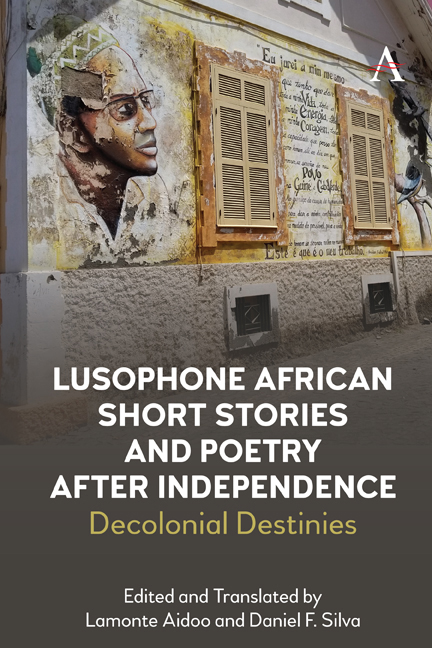Chapter 13 - Félix Sigá
Published online by Cambridge University Press: 23 February 2022
Summary
Introduction
Félix António Sigá (1954–2015) was born in Bissorã, Guinea-Bissau, and would go on to become a celebrated Guinea-Bissauan writer, though not the most prolific one, as well as a noted musician. Following independence, he played an active role in the construction of the nation, not only in terms of cultural production, but also in grassroots community building and in political life. As early as 1975, aged 21 years, he led the Bissorã chapter of the Juventude Africana Amílcar Cabral (Amílcar Cabral African Youth Association)—an educational and recruitment network of the postcolonial ruling Partido Africano para a Independência da Guiné e Cabo Verde (African Party for the Independence of Guinea and Cabo Verde, PAIGC) party. In 1979, he became an elementary school teacher in the Tite region, and spent the first half of the 1980s playing regional political roles within the PAIGC. In 1987, he became part of the PAIGC central committee, working within the Department of Administration and Finance.
During the 1980s, he began writing poetry and publishing works in small periodicals. At this time, he also found venues for his poetry in spaces created for literary production and consumption beyond the written word and the mechanical reproduction of literary products, specifically, radio programs dedicated to literature. These included “Tempo de Poesia” and “Tagara de Armondade” which were aired on national radio. His poetic work has appeared in numerous anthologies including the first widely disseminated collection of Guinea-Bissauan poetry in the Lusophone world, Antologia Poética da Guiné-Bissau (Poetic Anthology of Guinea-Bissau, 1990). He published his first collection in book form in 1996, titled Arqueólogo da Calçada (The Sidewalk Archaeologist), from which several of the poems below have been taken. As the scholar of Guinea-Bissauan literature Moema Parente Augel reminds us, Sigá possesses an immense unpublished oeuvre (241). Augel, herself, has also played a crucial role in the dissemination of Guinea-Bissauan literature—helping fund the publication of authors such as Sigá in a series known as the Kebur collection, through a grant from the European Union.
- Type
- Chapter
- Information
- Lusophone African Short Stories and Poetry after IndependenceDecolonial Destinies, pp. 153 - 162Publisher: Anthem PressPrint publication year: 2021

